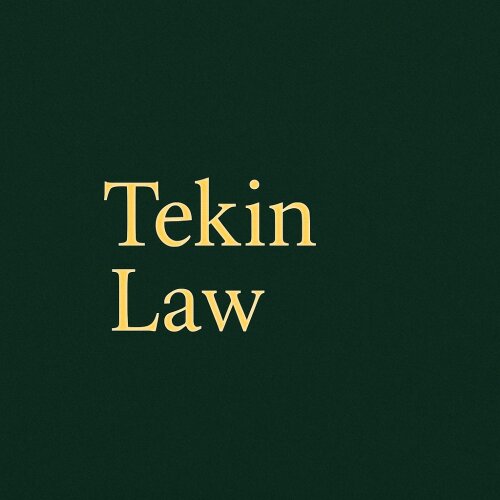Best Admiralty & Maritime Lawyers in Turkey
Share your needs with us, get contacted by law firms.
Free. Takes 2 min.
Or refine your search by selecting a city:
List of the best lawyers in Turkey
Legal guides written by Tekin Law Firm:
- Arbitration in Turkey
About Admiralty & Maritime Law in Turkey
Admiralty and Maritime Law in Turkey governs all matters relating to navigation and shipping, encompassing both commercial and recreational maritime activities. This area of law deals with a wide range of issues, including marine commerce, navigation, shipping, sailors, and the transportation of passengers and goods by sea. Given Turkey's strategic location with significant coastlines along the Aegean, Mediterranean, and the Black Sea, maritime law plays a crucial role in its legal system. Turkish maritime law is primarily governed by international treaties to which Turkey is a signatory, the Turkish Commercial Code, and various domestic regulations.
Why You May Need a Lawyer
There are several scenarios in which you might need the services of an Admiralty & Maritime lawyer in Turkey. These include:
- Disputes over shipping contracts or maritime insurance claims
- Accidents or injuries occurring at sea
- Disputes involving maritime boundaries or rights
- Environmental issues such as oil spills or accidental pollution
- Illegal shipping or fishing activities
- Compliance with international maritime regulations
Local Laws Overview
Key aspects of maritime laws in Turkey include:
- The Turkish Commercial Code: This code contains provisions that regulate maritime commerce and related activities.
- Port Regulations: These are specific rules for the operation and management of ports and harbors.
- Customs and Trade Laws: Governing the import and export of goods, crucial for shipping companies.
- Environmental Regulations: Protecting maritime environments from pollution and degradation.
- Compliance with International Conventions: Turkey adheres to conventions such as SOLAS, MARPOL, and UNCLOS, which are integrated into Turkish law.
- Seafarers Laws: Protecting rights of individuals working on vessels, including working conditions and safety standards.
Frequently Asked Questions
What is the significance of the Turkish Straits in maritime law?
The Turkish Straits (the Bosporus and the Dardanelles) are strategically crucial waterways, impacting international shipping. The Montreux Convention regulates passage through these straits, granting Turkey control over warship transit and ensuring free non-military shipping passage.
How does Turkey address maritime environmental issues?
Turkey follows international conventions such as MARPOL and has specific national regulations to prevent marine pollution. Offenders can face hefty fines and legal consequences, and rigorous compliance is required from shipping entities.
What are maritime liens?
Maritime liens are claims or privileges on a vessel for services rendered to, or injuries caused by, that vessel. They can include claims for unpaid wages, repairs, or damages due to negligence.
Are there special maritime insurance requirements in Turkey?
Yes, vessels must have insurance covering potential pollution damage and other maritime risks. Shipping entities must comply with both international insurance standards and Turkish regulations.
What is the procedure for ship arrest in Turkey?
Ship arrest is a legal action to detain a vessel to secure a maritime claim. In Turkey, this involves obtaining a court order by demonstrating the maritime claim and lodging a deposit.
What are the penalties for illegal fishing in Turkish waters?
Illegal fishing is subject to significant penalties including fines, confiscation of equipment, and even imprisonment depending on the severity of the offense and damage to marine life.
How are disputes related to international shipping contracts resolved?
Such disputes are typically resolved through arbitration, often specified in shipping contracts, or litigation under Turkish law if applicable. Turkey recognizes international arbitration awards.
Can recreational boat owners face legal issues under maritime law?
Yes, they must comply with safety standards, environmental protections, and registration requirements. Failure to meet these can result in fines or legal action.
What are the rights of passengers on Turkish ships?
Passengers have the right to safe and timely transport, and can seek compensation for personal injuries or loss of belongings as per international and Turkish laws.
How is maritime training and certification regulated in Turkey?
Turkey mandates stringent training and certification requirements for seafarers to ensure safety and compliance with international standards.
Additional Resources
For more information and assistance, you may contact the following organizations and agencies:
- Turkish Ministry of Transport and Infrastructure: Oversees maritime transport policies and regulations.
- Turkish Chamber of Shipping: Provides support and resources for maritime industries.
- Directorate General of Coastal Safety: Responsible for ensuring the safety of navigation in Turkish territorial waters.
- International Maritime Organization (IMO): Offers a wealth of resources and guidelines on international maritime law.
Next Steps
If you require legal assistance in Admiralty & Maritime matters, consider the following steps:
- Identify the Specific Issue: Clearly define the nature of your maritime legal issue and gather all relevant information and documentation.
- Seek Professional Advice: Contact a lawyer specialized in Admiralty & Maritime law to discuss your case. They can provide tailored legal advice suited to your situation.
- Prepare for Legal Proceedings: If legal action is necessary, your lawyer will guide you through preparing and filing the necessary legal documents.
- Follow Through: Stay actively involved and in communication with your legal counsel throughout the process to ensure the best possible outcome.
Lawzana helps you find the best lawyers and law firms in Turkey through a curated and pre-screened list of qualified legal professionals. Our platform offers rankings and detailed profiles of attorneys and law firms, allowing you to compare based on practice areas, including Admiralty & Maritime, experience, and client feedback.
Each profile includes a description of the firm's areas of practice, client reviews, team members and partners, year of establishment, spoken languages, office locations, contact information, social media presence, and any published articles or resources. Most firms on our platform speak English and are experienced in both local and international legal matters.
Get a quote from top-rated law firms in Turkey — quickly, securely, and without unnecessary hassle.
Disclaimer:
The information provided on this page is for general informational purposes only and does not constitute legal advice. While we strive to ensure the accuracy and relevance of the content, legal information may change over time, and interpretations of the law can vary. You should always consult with a qualified legal professional for advice specific to your situation.
We disclaim all liability for actions taken or not taken based on the content of this page. If you believe any information is incorrect or outdated, please contact us, and we will review and update it where appropriate.
Browse admiralty & maritime law firms by city in Turkey
Refine your search by selecting a city.

















